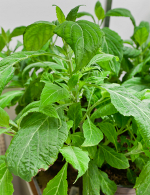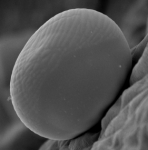Welcome to the Gang Lab at Washington State University
Hemp research is a big focus of our lab!
Check out our WSU Hemp Research page for details!
Looking for new Project Manager and Post-doc!
We currently have two positions available, a Project Manager and a post-doctoral research associate, available in our lab. The project these individuals will work on a new multi-institutional collaborative project that is developing a new class of dry beans, known as “popping beans”. These beans pop/puff when heated and have very interesting properties for human health and nutrition as well as for energy saving properties when cooked/processed. The Post-doctoral Research Associate, who will be a PhD level scientist, will spearhead efforts to screen developing popping bean varieties for disease resistance. The post-doctoral fellow will work closely with the Project Manager for the project, with Drs. Gang and Pappu, and with other research team members at partner institutions to identify individuals within breeding populations that have resistance to bean common mosaic virus (BCMV) and bean common mosaic necrosis virus, among other diseases, so that such resistance can be incorporated in the varieties of popping beans that are being developed for the project. The Project Manager will be responsible for the day-to-day management of this multi-institutional project and will also direct metabolomics-based components of the project.
If you are interested in being involved in this breatkthrough project and have a PhD in a plant science, chemistry or a related discipline, and are able to start working on the project right away, apply only at WSU’s Jobs website, positions # R-12067 and R-12186 and contact Dr. Gang if you have any questions.
Undergraduate Internship positions available for 2025!
We have several Undergraduate Internships available for Summer 2025 (yes, we are announcing this early). In 2024, we are supporting 8 interns across the western US, and in 2025 we hope to do the same. We are working with the hemp industry to develop knowledge and tools needed to move that industry forward in Washington State and the Western US. The Interns can participate in this effort by pursuing any area of research related to hemp. We have funding from a USDA-NIFA grant that is focusing on hemp industry development on tribal lands, and we have particular funding allocated to support Native American student interns. We will post official announcements in a couple of months, but feel free to reach out to Dr. Gang if you would like to learn more.
Why “Cellular Metabolism and Engineering”?
The basic building block of life is the cell. Cellular functions are governed by regulatory pathways and networks that work at the gene, protein, metabolite and ultrastructural levels. Such networks are often integrated across all of those scales. Our laboratory focuses on understanding those regulatory processes that involve metabolism in one way or another. Although metabolism is integrated between tissues and organs in an organism, metabolic pathways themselves typically exist and function within individual cells. Thus, in order to understand how metabolism truly functions in an organism, we must understand how it functions in individual cells, and in varying cell types within an organism and at the tissue level.
Engineering metabolism, either through modern transgenic or gene editing approaches typically included in Synthetic Biology-based efforts, or through traditional breeding and mutagenesis, is a goal that has received much attention in the last two decades due to problems with fuel and food shortages that will be faced as world population continues to grow. For those efforts to be successful, we must understand not only how metabolism is structured but also how it is regulated and controlled. Again, that occurs at the cellular level. Thus, a major goal of my lab is to understand how metabolism is structured and regulated in individual cell types and how metabolism is connected between different cell types, either within an organism or between co-existing organisms.
Our lab has long worked in the area of plant biochemistry/metabolism, with a major focus on plant specialized metabolism, as plants are ideal systems to work with to understand single-cell processes. But we often work on other organisms as well, such as studying cancer development and inflammation processes in mammalian systems, investigating the interaction between major insect pests and the microbes that infect them or that they vector to other eukaryotes, determining how marine microbes produce novel bioactive compounds, and gaining an understanding of how single-celled algae regulate metabolism such that we can use that information to design changes in bioenergy and bioproduct development efforts.
We are also interested in how metabolism is integrated within the whole physiology of the body and how it is regulated and controlled within organs, such as the rhizomes and glandular trichomes in plants; the haemolymph, guts and salivary glands of insects such as psyllids; and developing cancer tumors and surrounding tissues in animals.
All of those efforts have two things in common: 1) they focus on metabolic processes and their regulation and 2) we use cutting edge technologies in our efforts and those project areas are excellent realms to apply such approaches.
Metabolomics, proteomics and transcriptomics, as well as comparative genomics, are commonly used tools in my laboratory to help us uncover regulatory processes at the cellular and tissue scales in the various organisms that we work with.


